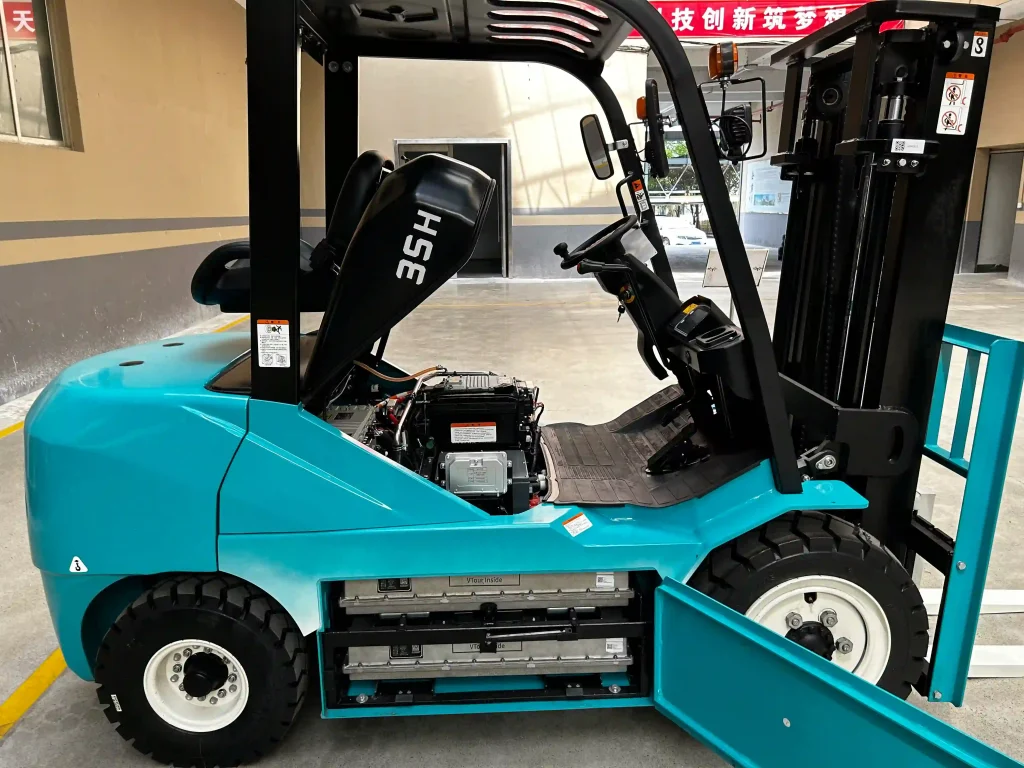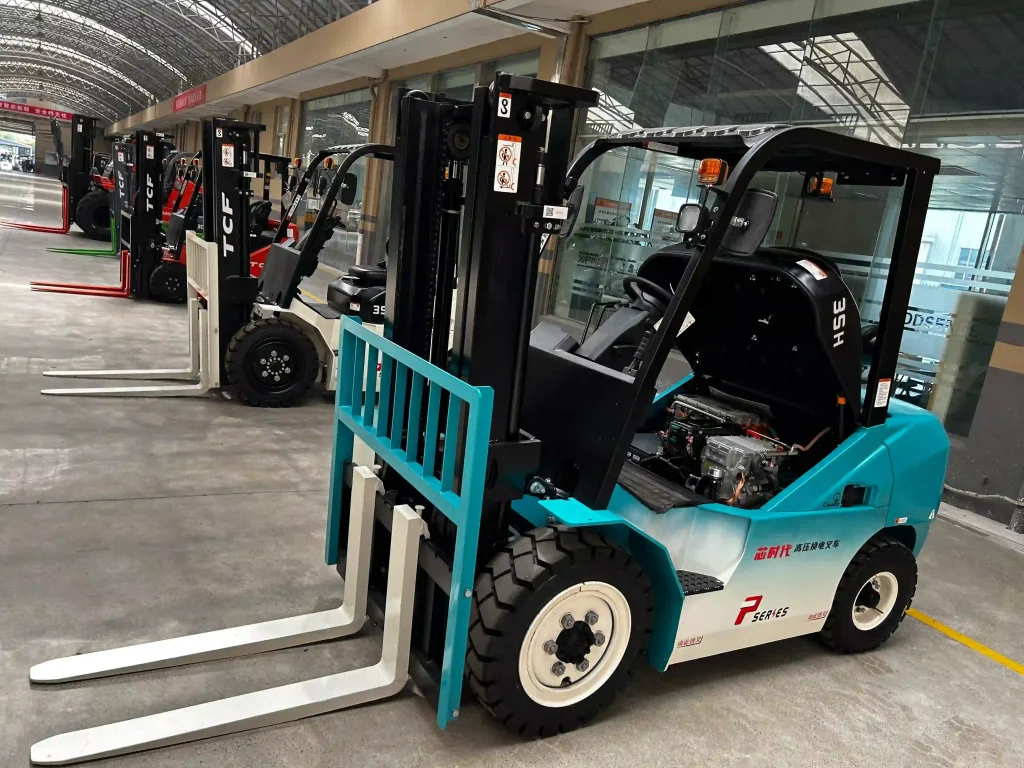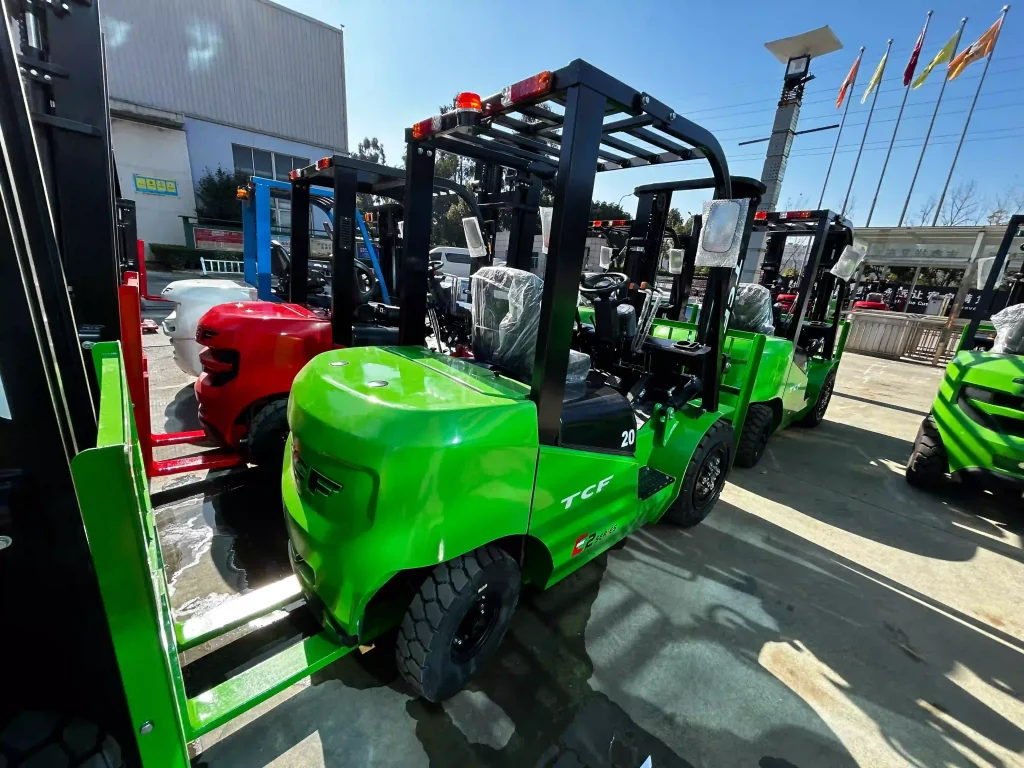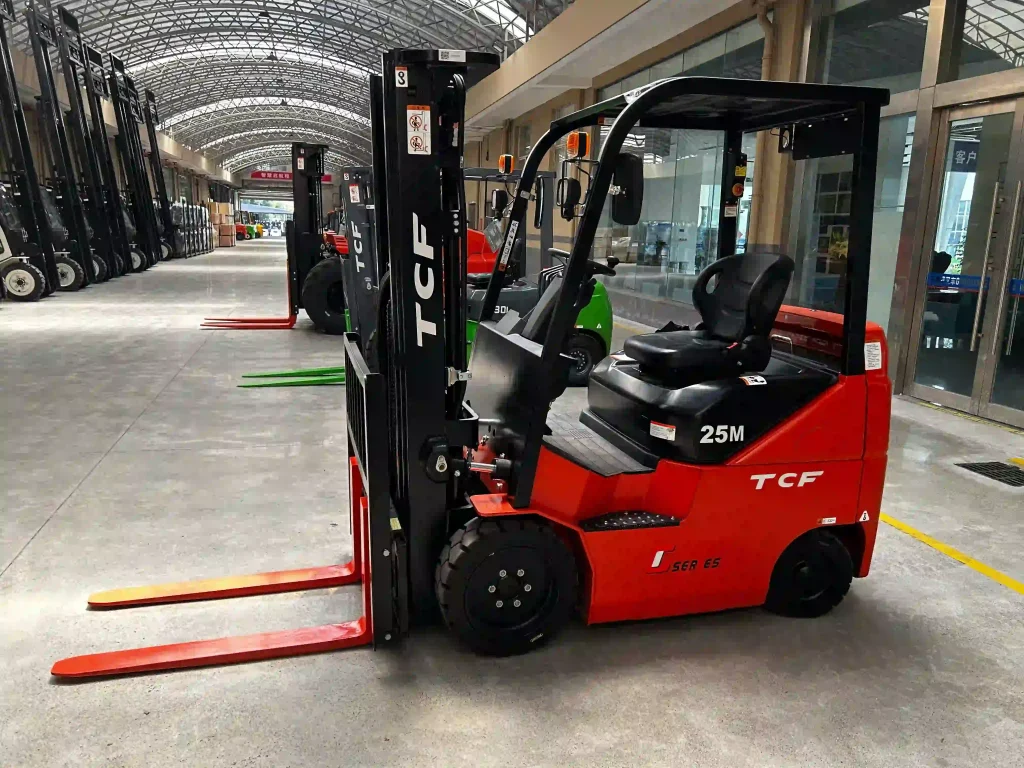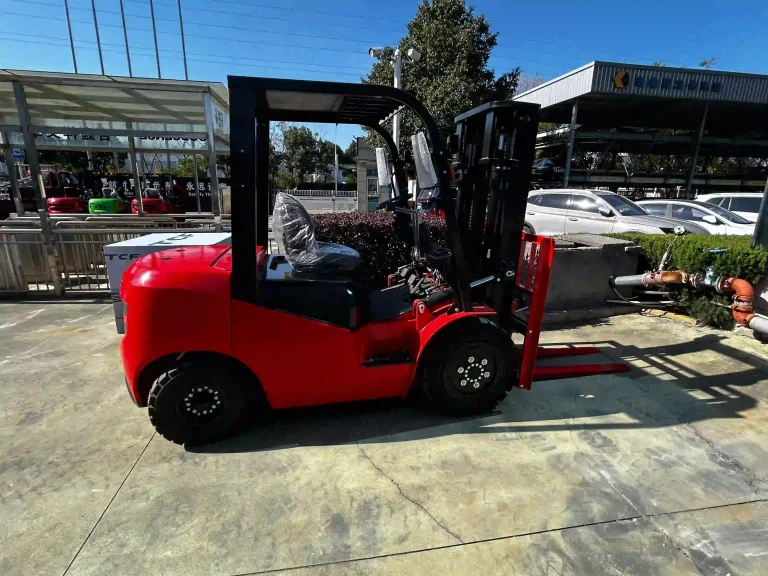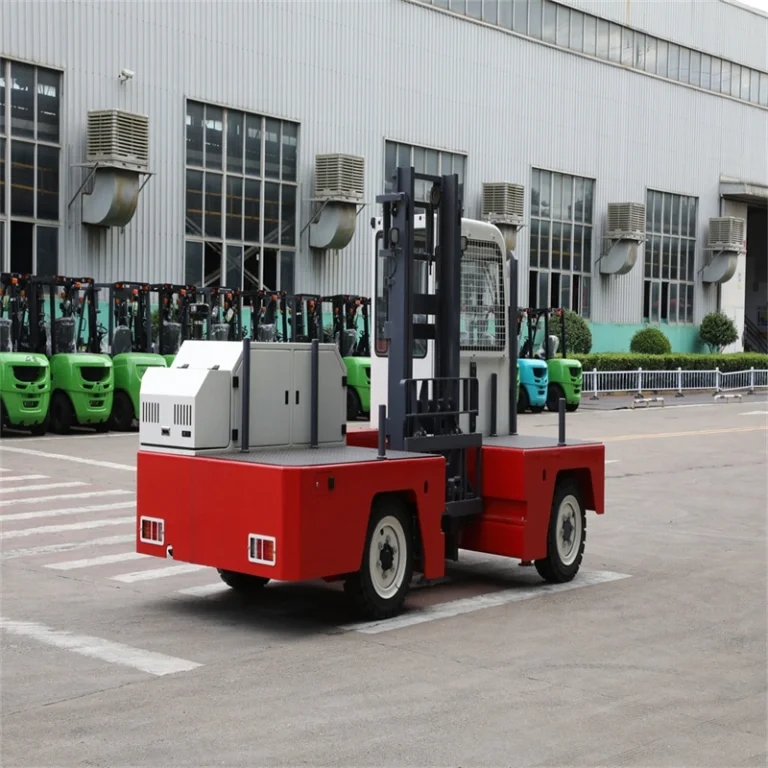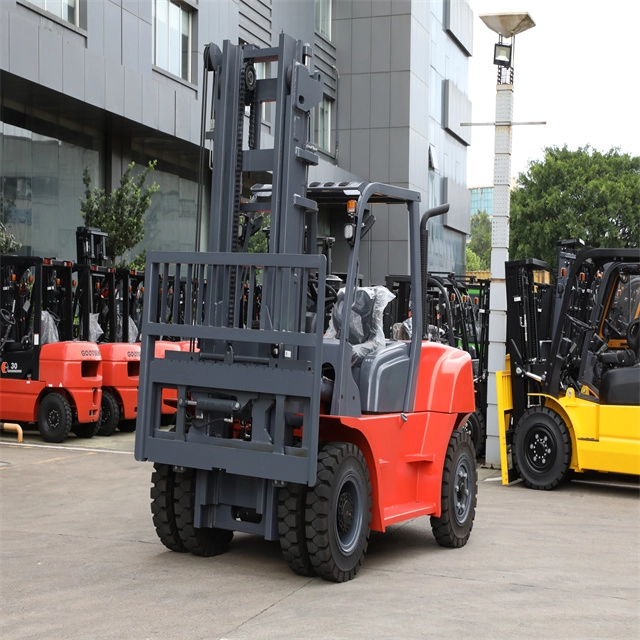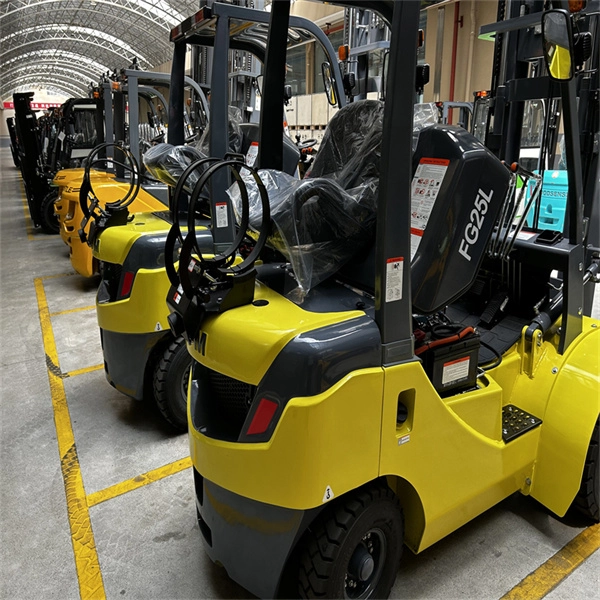The Growing Popularity of EV Forklifts
Key Features Driving EV Forklift Adoption
The surge in EV forklifts within material handling stems from their modern features and green benefits. A standout feature is the use of high-capacity lithium-ion batteries. These batteries charge quickly, last longer, and need less upkeep than traditional lead-acid batteries. Models like the 3-ton/3.5-ton E-series lithium battery electric forklifts showcase these improvements. They suit a range of industrial tasks.
Another key trait is energy thriftiness. These forklifts use less power thanks to efficient electric motors. This leads to cost savings over time. Their compact build also aids navigation in tight spots like narrow aisles.
Safety plays a big role in their rise. Systems like anti-rollback protection, overload alerts, and operator detection boost workplace safety. Plus, user-friendly controls and adjustable seats enhance comfort. This reduces strain during long shifts.
Advantages of EV Forklifts Over Traditional Models
EV forklifts outshine traditional internal combustion (IC) models, such as diesel or LPG forklifts. A major perk is their zero emissions and quieter operation. This makes them perfect for indoor settings and eco-conscious facilities.
Maintenance costs are lower compared to IC models. With fewer moving parts than oil-based engines, electric forklifts need less servicing. They also cost less to run. For example, the 3-ton/3.5-ton E2 series oil-to-electric forklift keeps the sturdy frame of its diesel version. Yet, it uses electric parts for cleaner performance.
Many models include regenerative braking technology. This recaptures energy during braking. It extends battery life and boosts efficiency. Real-time monitoring systems also help. They offer diagnostic data and battery updates to streamline operations.
Indoor Applications of EV Forklifts
Efficient Material Handling in Warehouses
Warehouses need gear that works smoothly without causing disruptions. EV forklifts fit well due to their silent operation and compact design. For instance, the 3-ton/3.5-ton E-series lithium battery electric forklifts are built for indoor use. They excel in warehouses and logistics hubs.
They navigate tight aisles with accuracy. This maximizes space use. They also emit nothing, keeping air clean in enclosed areas. Features like electronic stability control add reliability to operations.
Enhancing Productivity in Manufacturing Facilities
Manufacturing plants need flexible equipment for varied tasks. EV forklifts deliver with their high torque electric powertrains and strong load capacities. Models like the 8-ton/10-ton/12-ton/16-ton lithium battery electric forklifts handle medium- to heavy-duty jobs well.
These units have ergonomic cabins. They feature adjustable seats and low vibrations for operator ease during long hours. Their regenerative braking systems extend battery runtime. This supports steady work between charges.
Outdoor Applications of EV Forklifts
Performance in Rugged Outdoor Environments
Outdoor settings bring challenges like uneven ground and changing weather. Modern EV forklifts tackle these effectively. For example, the 30-ton/33-ton lithium battery electric forklift is made for heavy tasks. It moves steel coils or machinery in ports or large plants.
These models have reinforced chassis and high-strength masts. They ensure stability when lifting heavy loads. Large tires and stable suspension systems improve grip on rough surfaces.
Durability comes from weather-proof parts. These allow forklifts to work reliably outdoors. They maintain efficiency and safety standards.
Supporting Construction and Logistics Operations
Construction sites and logistics centers need equipment for tough workloads. It must meet environmental rules. The green high voltage lithium battery electric forklift shines here. It blends sustainability with performance.
Its compact design helps operators move easily in tight spaces. It keeps loads stable. Real-time monitoring systems give key data. This supports proactive upkeep and cuts downtime.
Its zero-emission operation fits strict environmental laws in construction and logistics worldwide. The forklift handles oversized loads well. This makes it valuable for industries aiming for green growth.
Key Factors to Consider When Choosing an EV Forklift
Battery Performance and Charging Efficiency
When picking an EV forklift, battery performance and charging speed matter greatly. Modern electric forklifts often use lithium-ion batteries. These outdo traditional lead-acid options. For instance, the 3-ton/3.5-ton E-series lithium battery electric forklifts have high-capacity lithium-ion batteries. They charge faster, last longer, and need less care. These traits boost work efficiency. They also reduce downtime during busy shifts.
Regenerative braking enhances battery efficiency. It recaptures energy during braking. This feeds back into the battery. Models like the green high voltage lithium battery electric forklift use this tech. It extends runtime and cuts energy use. For firms with heavy material handling needs, these features save money over time.
Load Capacity and Operational Flexibility
An EV forklift’s load capacity should match your work needs. For medium tasks, the 3-ton/3.5-ton E2 series oil-to-electric forklifts are ideal. They keep the strength of traditional IC models. They also use electric parts for cleaner, quieter operation.
For more heavy-duty work, larger models like the 8-ton/10-ton/12-ton/16-ton lithium battery electric forklifts are more powerful. They lift heavy loads like steel coils or equipment in any sector. Their heavy-duty chassis and high-strength masts give them stability when lifting heavy loads. They run in a warehouse or on the outside yard.
Operational flexibility matters too. Compact designs aid movement in tight aisles or small spaces. The green high voltage lithium battery electric forklift shows this. Its compact chassis allows easy navigation in confined areas.
Environmental and Cost Benefits
EV forklifts are known for green perks. They produce zero emissions and run quietly. This creates a healthier workplace. It aligns with sustainability goals. They suit indoor operations where air quality is key.
Cost savings stand out too. Models like the 3-ton/3.5-ton E2 series oil-to-electric forklift have lower upkeep costs. They have fewer moving parts than IC engines. Their efficient electric motors cut long-term expenses. Firms may also gain from government incentives for eco-friendly gear.
JinChengYu: Innovating Solutions Beyond EV Forklifts
JinChengYu leads in offering smart material handling solutions. Its products meet varied industrial needs while focusing on sustainability. Their lineup includes advanced EV forklifts. These tackle modern work challenges.
The 30-ton/33-ton lithium battery electric forklift highlights JinChengYu’s focus on heavy-duty tasks. It’s built for moving large machinery or containers in ports. It blends durability with eco-friendly performance. Its reinforced chassis ensures stability in tough jobs. Large tires offer great traction on uneven ground.
JinChengYu prioritizes operator comfort and safety. Ergonomic cabins have adjustable seats and intuitive controls. These reduce strain during long shifts. Advanced safety systems include electronic stability control and overload protection. They improve workplace safety.
The company also uses cutting-edge tech. Real-time monitoring systems track battery status and forklift performance. This supports proactive upkeep and efficient fleet management.
FAQ
Q: What are the key benefits of using an EV forklift?
A: EV forklifts provide many perks. They have zero emissions, low noise, and reduced upkeep costs. They are energy-efficient. They suit indoor settings where air quality matters. They save money over time through lower running costs.
Q: How do I choose the right EV forklift for my needs?
A: Look at load capacity, battery performance, and work needs. Consider operational flexibility too. For medium tasks, try the 3-ton/3.5-ton E-series lithium battery electric forklift. For heavier jobs, the 30-ton/33-ton lithium battery electric forklift works well.
Q: Are there any environmental advantages to using EV forklifts?
A: Yes! EV forklifts emit nothing and run quietly. They are greener than traditional IC models. They lower carbon footprints and support sustainability goals.
Q: Can EV forklifts handle outdoor operations?
A: Yes! Many modern EV forklifts work indoors and outdoors. JinChengYu’s 30-ton/33-ton lithium battery electric forklift is built for tough conditions. It maintains high performance.
Q: What kind of maintenance do EV forklifts require?
A: EV forklifts need less upkeep than IC models. They have fewer moving parts. Regular checks on batteries and electronic components keep them running well.

